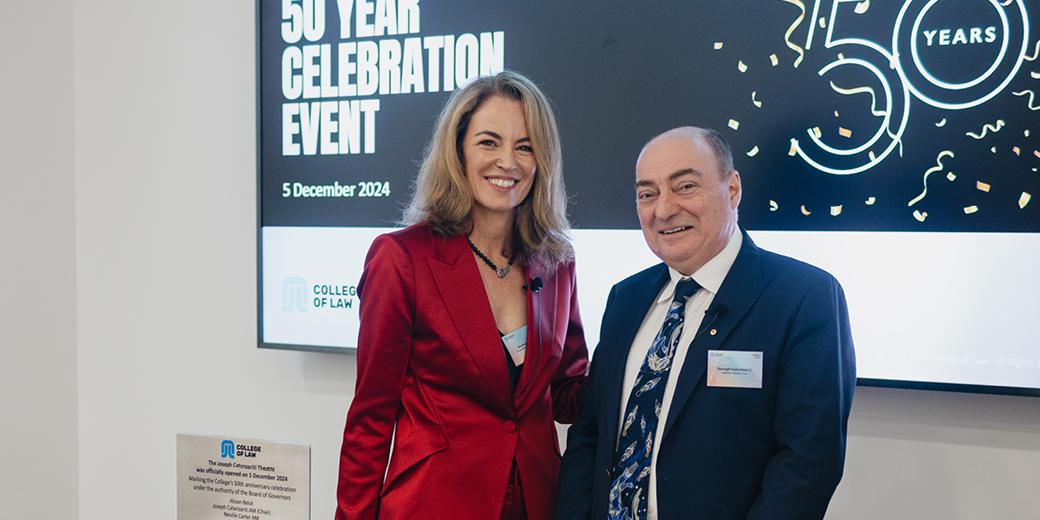See More (40)
40 results showing for '[]'
40 results showing for '[]'

Are you an introverted lawyer? Don’t underestimate your power, especially in leadership
In a world full of extroverts and loud leadership, quieter ways of leading and the power of a more introspective approach can be overlooked. In this article we talk to global executive coach and general manager of professional leadership consultancy FrontTier, Sam Shosayna, about the unique leadership abilities introverts possess. In the law, listening, observing and assessing, can provide powerful insights and leadership.

Australia rejects AI copyright exemption, backs creative industries
The Australian Government recently ruled out changing copyright law to allow AI to train its models on Australian creative work. We caught up with privacy, AI and tech lawyer Matthew Hodgkinson, AI regulation expert Raymond Sun, and bestselling author Wenee Yap to review these recent developments and assess what it may mean for Australia’s approach to AI.

Key legal tech learnings from an ex-Google developer: Logic Firm
A journey from big tech to legal practice has produced Logic Firm, a practice management system built by someone who understands the subtle tensions of legal work. For example, why optimising billable activities can threaten a firm's revenue model, or why universal buy-in comes from improving tedious non-billable processes like quote management and billing review.

From 🤔 to 👍: How Emoji Are Finding Their Way Into Australian Law
Learn how emoji are making their way into Australian law. John Molloy, Lecturer at the College of Law, recently won the Australian Institute of Administrative Law blog competition with his examination of emoji use in administrative law. His analysis explores how these small digital pictographs might reshape legal communication in an increasingly digital world.

South Australia has a new Succession Act. Here’s what you need to know.
Major reforms to South Australia’s succession laws came into force on 1 January 2025. The new year saw the repeal of three Acts (the Administration and Probate Act 1919 (SA), the Inheritance (Family Provision) Act 1972 (SA) and the Wills Act 1936 (SA)), replacing these with a single Succession Act 2023. These are the most significant changes to be made in 30 years, Lawyer Megan Horsell outlines what you need to know.

Top 10 legal stories from 2024
From practical legal guides on cross-qualifying in the US and UK markets to insights on working with neurodivergent clients, our top ten legal stories highlight the profession's commitment to adaptation and excellence. As we head into 2025, these stories paint a picture of a profession in transition, where understanding the diverse needs of our clients matters as much as updates to the law itself. Let’s explore what captured your attention in 2024.

50 Years of the ‘Australian Legal Experiment’: College of Law
The College of Law celebrates 50 years of service to the legal industry. Since it opened its doors in 1974, the College has empowered over 100,000 professionals to achieve their career aspirations in the law. We take a look at the College’s many legal education milestones and hear from long-standing CEO Neville Carter and Chairman Joseph Catanzariti AM.

The Deepfake Sexual Material Act 2024 - What’s next?
A proposed ban on deepfake pornography has been introduced sparking debate among legal experts, privacy advocates, and technologists. The College caught up with Raymond Sun, an award-winning technology lawyer and full-stack developer, on the potential implications of this legislation.
![How to handle Direct Speech after Gan v Xie [2023] NSWCA 163](https://images4.cmp.optimizely.com/assets/Lawyer+Up+direct+speech+in+drafting+NSW+legislation+OCT232.jpg/Zz1hNDU4YzQyMjQzNzkxMWVmYjFlNGY2ODk3ZWMxNzE0Mw==)
How to handle Direct Speech after Gan v Xie [2023] NSWCA 163
A recent case before the New South Wales Court of Appeal, Gan v Xie [2023] NSWCA 163, resurfaced issues regarding direct speech, and how it ought to appear in an affidavit. Barrister Jonathan Tsang, a College of Law graduate, spoke to us about the key implications following this decision, and what lawyers need to know moving forward.

